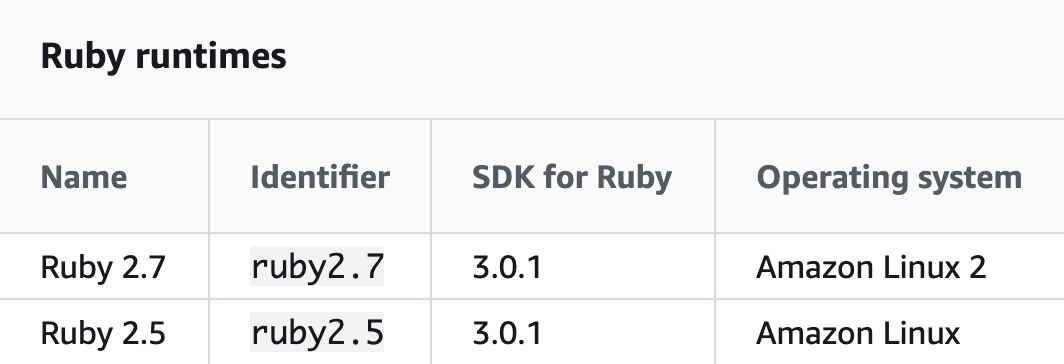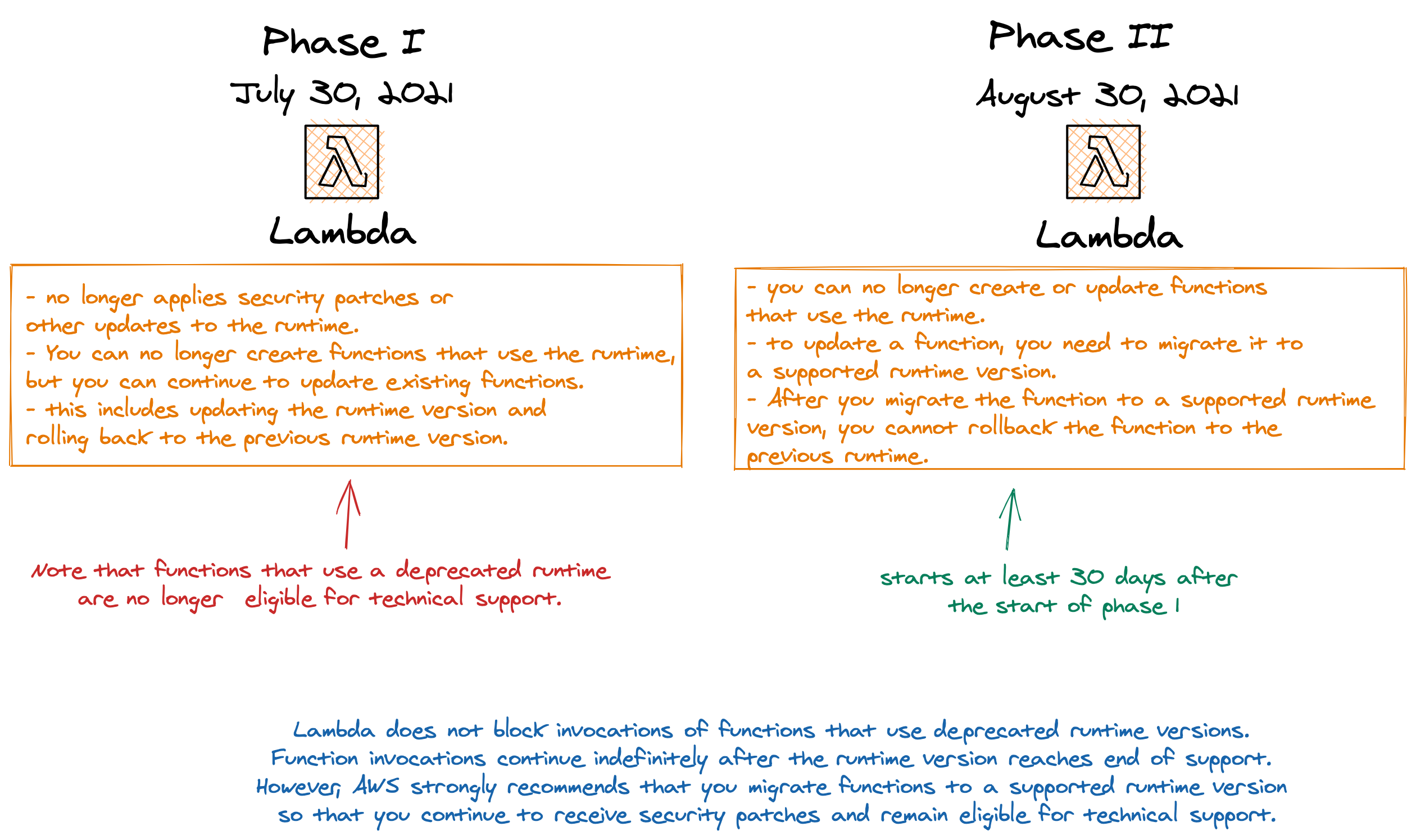AWS Lambda end of support for Ruby 2.5
Introduction
This morning I received an email from AWS regarding EOL for AWS Lambda Ruby 2.5, so I thought it was worth writing something about it.
Currently, we can run our Ruby code in AWS Lambda for two existing runtimes:

The runtime itself provides a ruby-specific environment that runs in an execution environment. Then the runtime relays invocation events, context information, and responses between Lambda and the function. We can defined runtimes for .zip files, or for container images.
Lambda runtimes for .zip file archives are built around a combination of an operating system, programming language, and software libraries that are subject to maintenance and security updates.
General content
AWS recently announce end of support (deprecation) for Ruby 2.5. EOL for a runtime occurs always in two phases:

Lambda notifies you by email if you have functions using a runtime that is scheduled for the end of support in the next 60 days:

End of support does not impact function execution. Your functions will continue to run, however, they will be running on an unsupported runtime which is no longer maintained or patched by the AWS Lambda team.
You can continue to create and update your Ruby 2.5 functions that are deployed as container images after the end of the support date. However, Lambda will no longer update the Ruby 2.5 base image used to create these functions. You will be responsible for managing security patches and other updates for your container images.
More information about Runtime support policy (not only for Ruby) you can found here.
How to check that?
There are two approaches, either via AWS Dashboard within all your lambda lists you can search via runtime, so all functions with ruby 2.5 will be displayed:

Also you can check all your functions via AWS CLI command: